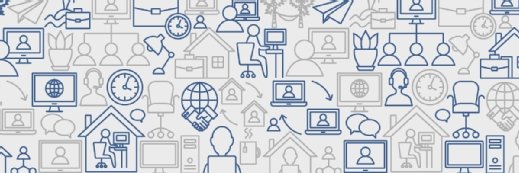
Viorika/istock via Getty Images
90% of medical coding staff worry about upcoding, fraud
Healthcare fraud, such as upcoding and unbundling, has medical coding and billing professionals worried about the industry.
Healthcare fraud is top-of-mind for medical coders and health information management professionals, with 90% agreeing that the practice of upcoding remains a key ethical dilemma for medical coding and billing experts, according to a Black Book Research survey released ahead of the AHIMA Conference.
Upcoding refers to the practice of documenting higher-level codes than might be justified in order to receive greater reimbursement, Black Book Research explained. Upcoding is a form of healthcare fraud that can leave healthcare organizations liable for Medicare or Medicaid penalties and can contribute to the overall rise in healthcare costs.
In many cases, coding staff are ordered by their managers to upcode and, legally speaking, they might end up being considered involuntary accomplices, the survey authors explained.
Around a fifth (18%) of survey respondents said they'd been pressured or ordered by their employer to engage in "fraudulent coding for provider financial gain," or upcoding, the survey revealed. Nearly all (99%) of respondents agreed that there will likely be an increase in whistleblower cases regarding upcoding.
Respondents also indicated some ethical questions in terms of risk score manipulation, albeit it was a small proportion. An overall 7% of respondents acknowledged the issue of manipulated risk scores to enhance value-based reimbursements. This means an organization might overstate the risk of the population it serves in order to receive greater value-based reimbursements.
Nearly half (48%) of respondents said they're worried about the integrity of coding processes in light of such potential manipulation.
Coding errors might be the result of complexity
Although medical coding staff are aware that their field can be rife with fraud, they also acknowledge that many coding errors and discrepancies are the result of complexity.
Overall, 85% of respondents agreed that the complexity of systems contributed to the discrepancies found during coding audits, which they indicated raises questions about the fairness of such audits.
Survey respondents were split about bundling and unbundling of payments, the survey continued. Around half (55%) said bundled payments can be reductive of the full scope of services of treatment. However, they also acknowledged that unbundling payments -- the process of separately coding individual components of a single healthcare procedure -- might constitute fraudulent billing.
Coding in value-based care agreements remains challenging
As the healthcare industry continues to embrace value-based care, medical coding experts have their concerns. More than half (64%) said they are worried about whether current coding best practices can adapt to value-based reimbursement models. Another 29% said it might be hard to align their current systems with the stringent documentation practices necessary for value-based care.
Will SDOH coding perpetuate implicit bias?
Medical coding and billing staff are also worried about the risk that coding for social determinants of health (SDOH) might have on the patient experience.
Coding for SDOH is well-intentioned. The practice helps document health-related social needs, which foremost helps providers receive reimbursement for SDOH work and also ensures patients can get their SDOH met.
However, 69% of the coding staff surveyed said they're worried that SDOH coding might reinforce implicit biases or affect coverage decisions, the survey showed.
ICD-11 leadup -- a case of déjà vu?
The bulk of survey respondents also expressed concerns about upcoming transitions to the ICD-11 coding system, the exact timeline of which is still unclear but expected between 2025 and 2027.
Eight in 10 said they're worried about the need for more training to transition to the coding system, as well as potential for coding mistakes once ICD-11 is in place in the U.S. Another 87% of respondents are worried about overall readiness, but only 11% of provider organizations have started to prepare for the switch, the survey showed.
These concerns feel like a case of déjà vu from when the U.S. transitioned to the ICD-10 coding system. Despite industry-wide anxiety about the change, most experts agree the ICD-10 transition went smoother than expected. Still, ample preparation for major medical coding changes would be prudent.
Coding staff worried about AI
The medical coding and billing community is worried about the use of AI to automate billing processes, the survey concluded.
AI is already being used to automate some coding and billing tasks, the survey authors stated. However, 94% of respondents said they're unsure if AI can capture the nuances of medical coding. Another 97% fear that human oversight of medical billing will fall by the wayside. Finally, about three-quarters expressed fears that AI could perpetuate biases in medical coding and billing.
Sara Heath has reported news related to patient engagement and health IT since 2015.






